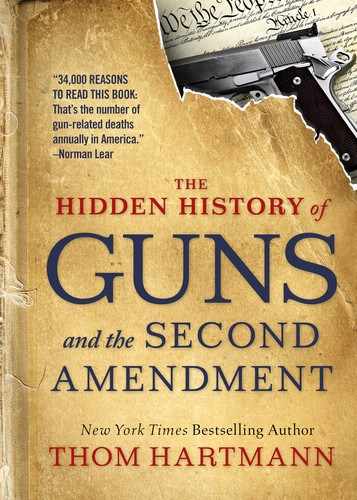CHAPTER 14
The Gunshot That Ended Reconstruction
If this country cannot be saved without giving up that principle [of ending slavery]. . . I would rather be assassinated on this spot than to surrender it.
-Abraham Lincoln, speech in Independence Hall, Philadelphia, Pennsylvania, February 22, 18611
The Civil War was over. The South had surrendered, and Lincoln had broken the South into administrative sections under control of the Union Army.
Southerners hated the arrangement—just four years earlier they had seceded from the United States to fight for their states’ rights to own slaves. And now, they had lost the war and lost their slaves. Adding insult to injury, many southern slave patrols were replaced with police forces that included freedmen.
For more than a century, the hierarchy of the South was clear: there were the unarmed slaves, and there were the well-armed white folk. Now, with the Union Army in charge and freedmen acting as law enforcement, the tables seemed to be turned.
In short, they felt their way of life was being taken away by northern elitists who didn’t understand or respect the culture of the Old South.
John Wilkes Booth was an actor who also held strong loyalties to the South. A supporter of slavery, he’d joined the Richmond militia and witnessed the hanging of abolitionist John Brown in October 1859. He escaped fighting for the South in the Civil War because he’d accidentally shot himself in the thigh during an 1860 performance of Hamlet.2
In November 1863, he performed in a play called The Marble Heart in Ford’s Theatre in Washington, DC; in the audience were President and Mrs. Lincoln. A few months later, in May 1864, Booth invested his entire life savings in an oil operation in western Pennsylvania; it later turned out he’d been swindled and he lost everything. Bitter, angry, and fully bought into the southern story that the Civil War was all about the evil bankers and investor class in the Northeast, Booth joined a small group of bitter Confederates in a conspiracy to kill Lincoln and decapitate his administration.
Thus, in April 1865, Booth shot President Abraham Lincoln in the back of the head while the president enjoyed the play Our American Cousin at Ford’s Theatre. Booth then flung himself from the balcony, making his motives clear as he dramatically shouted “Sic semper tyrannis!’’ (“Thus always to tyrants!”).
The event marked the first time a US president was assassinated. It also marked the end of any serious efforts to reconstruct the South and to ensure the safety and equality of millions of newly enfranchised freedmen.
The end of the Civil War and the passage of the 13th, 14th, and 15th Amendments marked the official end of slavery in American history—but not the end of white supremacy, or of the Old South’s race-based hierarchy and its use of guns to enforce it.
